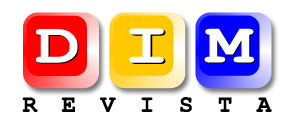La liberación de las TIC
RESUMEN
La tendencia generalizada ha sido a menudo querer apresurarse en la incorporación de las nuevas tencnologias en el aula. Ésta incorporación, que en Matgran creemos necesaria, debe estar sujeta a un objetivo muy simple: mejorar en la medida de lo posible aquellos puntos donde el sistema actual flaquea.
Los argumentos son sencillos: los cambios de paradigma no se producen por regulaciones externas ni por presiones de ningún tipo. Simplemente ocurren cuando es debido, después del proceso de maduración. Las nuevas tecnologías abrirán paso a nuevos métodos educativos. Pero será en base a lo que las tecnologías ofrecen el que debamos escoger según qué método. Esto es lo que nos cuestionamos en Matgran y exponemos en este artículo.
PALABRAS CLAVE: .TIC, Educación, Matemáticas, Paradigma, Competencias
AUTORES
 Àlex Domínguez Clarimón <adominguez@matgran.com>
Àlex Domínguez Clarimón <adominguez@matgran.com>
Profesor de Matemáticas y Física en ESO y Bachillerato / Director Pedagógico en MATGRAN
F. Xavier Iribarne <fxiribarne@matgran.com>
Director-Gerente en MATGRAN
REFERENCIA BIBLIOGRÁFICA
DOMINGUEZ, Àlex; IRIBARNE, Francesc Xavier (2014). La liberación de las TIC. En Revista Didáctica, Innovación y Multimedia, núm. 28 <http://dim.pangea.org/revista28.htm>
The impacts of ICTs on Education
ABSTRACT
The general trend has often been wanting to rush to the incorporation of news ICTs at classroom. This incorporation, which in Matgran we regard necessary, should be subject to a very simple goal: to improve as much as possible the points where the current system fails.
The arguments are simple: paradigm shifts are not caused by external regulations or by pressure of any kind. Simply occur when due, after the natural maturation process. New technologies open the way to new educational methods. But it will be based on what technologies offer that we should choose according to what method. This is what we question in Matgran and expose in this article.
KEYWORDS: ICT, Education, Mathematics, Paradigm, Competences






